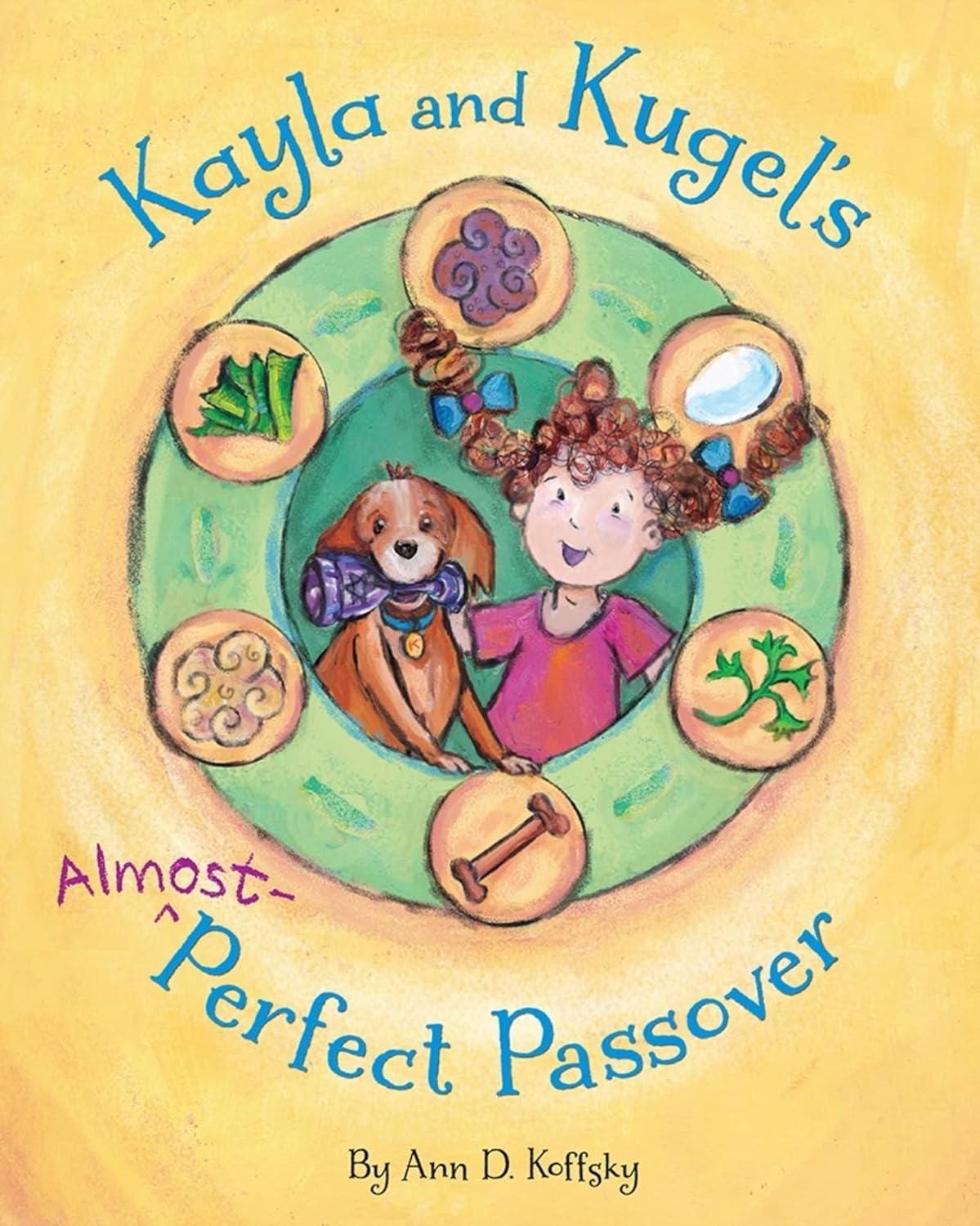Making Passover Accessible for People Who are Blind, Low Vision, or Print Disabled
By Livia Thompson, JBI Executive Director
The declaration of the Passover Seder dinner, “Let all who are hungry come and eat,” can be seen as a powerful call for inclusion. It’s an invitation for all who wish to be a part of the Seder ritual to gather around a table together, eat, drink, discuss, and reflect. To help ensure our holiday seders are truly inclusive, JBI (founded as the Jewish Braille Institute) offers 18 different accessible Haggadot in all formats, free of charge, for people who are blind, have visual impairments, or print disabilities.
“Participation at a Passover Seder can be difficult and isolating for those who have trouble reading standard text,” noted JBI Executive Director Livia Thompson. “Our hope is that everyone, young and old, will be able to join together with family, friends, and community to partake in the mitzvah of sharing the Passover story. Whether leading the seder in a long-standing family tradition or reciting the Four Questions for the first time, all should be able to participate and feel they belong.”
JBI’s Haggadot are available in several languages and denominations, as well as a Haggadah "digest" for communal seders perfect for use in settings such as nursing homes. Last year JBI partnered with several organizations to add new braille and large-print editions to their offerings, which now include the Mishkan HaSeder from the CCAR Press, PJ Library’s Family Haggadah, and the Chabad Haggadah. Through the PJ Library collaboration, JBI has also made an audio version available for families who want to study the text and songs in advance of the holiday. To receive a Haggadah in time for the first night of Passover, orders must be placed with JBI by April 11, 2024.
In addition to free, accessible Haggadot, readers have access to a wealth of holiday-themed reads from JBI’s circulating library of more than 13,000 titles. JBI Librarian Arlene Arfe said, “We're especially excited about the new braille (over print) and audio children’s books we have for families to share, including ‘Kayla and Kugel’s Almost-Perfect Passover’ by Ann D. Koffsky (in audio and braille), about an adorable pup named Kugel who takes young readers through his family’s Passover seder by way of many mischievous hijinks.”
Some of Arfe’s other picks include:
For the historian: “The Origins of the Seder: The Passover Rite and Early Rabbinic Judaism,” by Baruch M. Bokser (available in audio format)
Originally published in 1984 by theologian and rabbi Baruch M. Bokser, this is a scholarly look at Passover from its ancient origins to its modern-day significance. Along the way, Bokser illuminates much about the holiday and its central importance to both Judaism and Christianity.
For the Millenial: “How This Night Is Different: Stories,” by Elisa Albert (available in audio format)
A debut short story collection that explores what it means to be young and Jewish in the 21st century with “wit, compassion, and iconoclastic attitude.” Time Out New York calls it “a wonder-inducing blend of sharp humor, religious ambivalence, and caustic wisdom.”
For the tween reader: “The Koufax Dilemma” by Steven Schnur (available in audio format)
Danny is a lefty pitcher—just like legendary Dodgers great Sandy Koufax. And like the Jewish Koufax, who famously refused to pitch on Yom Kippur, Passover Seder, and Rosh Hashanah, Danny faces a tough choice when his big game falls on the first night of Passover.
For grown-ups and children reading together: “Matzah Craze” by Jamie Kiffel-Alcheh and illustrator Lauren Gallegos (available in audio and braille)
Noa’s elementary school cafeteria is usually the site of adventurous food swapping, but not this week—at least not for Noa. When her puzzled friends wonder why she doesn’t want to try their kind offerings, she explains that she’s keeping kosher for Passover. Instead, she shares a taste of her matzah with them, sparking a class craze for the delicious unleavened bread.
For the consummate host: “The Passover Gourmet” by Nira Rousso (available in audio and large print)
Bring your appetite and your curiosity to this classic collection of Pesach favorites from around the globe that has been a favorite among cooks for more than three decades. You’ll find recipes for appetizers, breakfast dishes, fish, soup, noodles, dumplings, meat, poultry, vegetables, kugel, quiche, casseroles, cakes, and desserts—many with wonderful notes on their cultural origins.
To learn more or to request a free large print, braille, or audio Haggadah for you or someone you know or love, or to learn more about JBI’s wide array of services and offerings, please visit JBI’s website at www.jbilibrary.org, call 800-999-6476, or email haggadah@jbilibrary.org (for haggadot) or admin@jbilibrary.org (for general inquiries). Please note orders are requested by April 11 in order to receive a free Haggadah in time for this year’s Passover Seder. All of JBI’s services, including Haggadot, are free for individuals. For institutions requesting multiple Haggadot or other liturgical texts, JBI charges a modest fee to cover the cost of production for those located outside of New York City. (Within NYC nonprofits can request Haggadot, free of charge, thanks to an accessibility grant serving NYC.)





